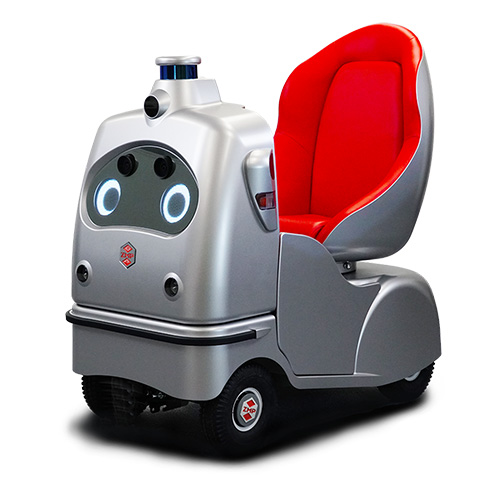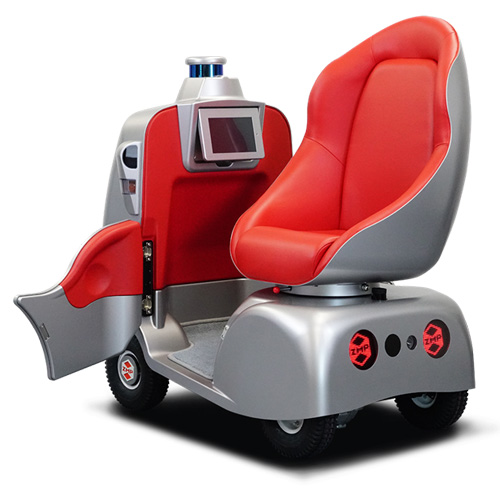ECONYKOL™ Biomass Plastic Raw Material Adopted for Use in ZMP’s New Self-Driving Car, Robocar™ Walk
Pursuing increased use of biomass plastics to help combat global warming
2019.07.23
Mitsui Chemicals, Inc.
Mitsui Chemicals & SKC Polyurethanes Inc.
Mitsui Chemicals, Inc. (Tokyo: 4183; President & CEO: Tsutomu Tannowa) and Mitsui Chemicals & SKC Polyurethanes Inc. (Seoul, Korea; Co-CEOs: Eui Joon Lim, Shingo Shibata; MCNS) announced that their ECONYKOL™ bio-polyol, a raw material for plant-derived biomass plastics that can help reduce environmental impact, has been adopted for use in the Robocar™ Walk, the latest model in the RoboCar™ series of self-driving cars sold by ZMP Inc. (Tokyo; CEO: Hisashi Taniguchi).
Announced at the ZMP World 2019 event being held over July 23–26, the Robocar™ Walk represents a new concept for self-driving mobility and a partner in how people transport themselves moving forward.


In creating ECONYKOL™, MCNS uses castor seeds – non-edible plant matter that does not compete with food sources – to produce biomass plastic that helps solve the issue of climate change. This then serves as a raw material for a polyurethane product on a positive list that serves as the basis for BiomassPla certification.*1
Polyurethane foam using ECONYKOL™ is already finding increasing use in cushion materials for automotive seats and furniture. Now, MCNS is also supplying ECONYKOL™ as a raw material for seat cushions in ZMP’s Robocar™ Walk, making for a 27 percent reduction in CO2 emissions compared with general-purpose polyurethane foam.
“ZMP has worked to create robotics using designs that resonate with people,” ZMP CEO Taniguchi said. “Further here, we think it’s essential to make use of materials that are both people-friendly and environment-friendly. By adopting ECONYKOL™ here, we’re able to create robotics that are both people-friendly and eco-friendly – making it possible to provide even more value to our customers.”
Going forward, the Mitsui Chemicals Group will continue to provide ECONYKOL™ alongside a suite of other materials and technologies aimed at helping solve the issue of global warming. The Group hopes that by pursuing new applications for these materials and technologies, it will be able to contribute to the realization of a circular economy.
*1)BiomassPla certification
Overseen by the Japan BioPlastics Association, this certification system helps customers to identify biomass plastic products.
Outline of the ZMP World 2019 Event
ZMP World 2019: “From R&D to Mass Production –Robolution by ZMP–”
| Date and time: | July 23 (Tuesday) – July 26 (Friday) 2019, from 10:00 to 18:00 |
| Venue: | Bellesalle Iidabashi First (Sumitomo Fudosan Iidabashi First Tower B1, 2-6-1 Koraku, Bunkyo-ku, Tokyo) |
| Participation fee: | Free (fees charged for social gatherings) |
| Special website: | https://www.zmp.co.jp/en/products/zmpworld2019 |
About ECONYKOL™
ECONYKOL™ is a bio-polyol made using castor oil, a non-edible substance that does not compete with food sources. ECONYKOL™ is manufactured by Vithal Castor Polyols Pvt. Ltd. (Mumbai, India), a JV established in 2013 in India – the world’s largest source of castor beans – and owned 50 percent by Jayant Agro-Organics Ltd., 40 percent by MCNS and 10 percent by Itoh Oil Chemicals Co., Ltd.


